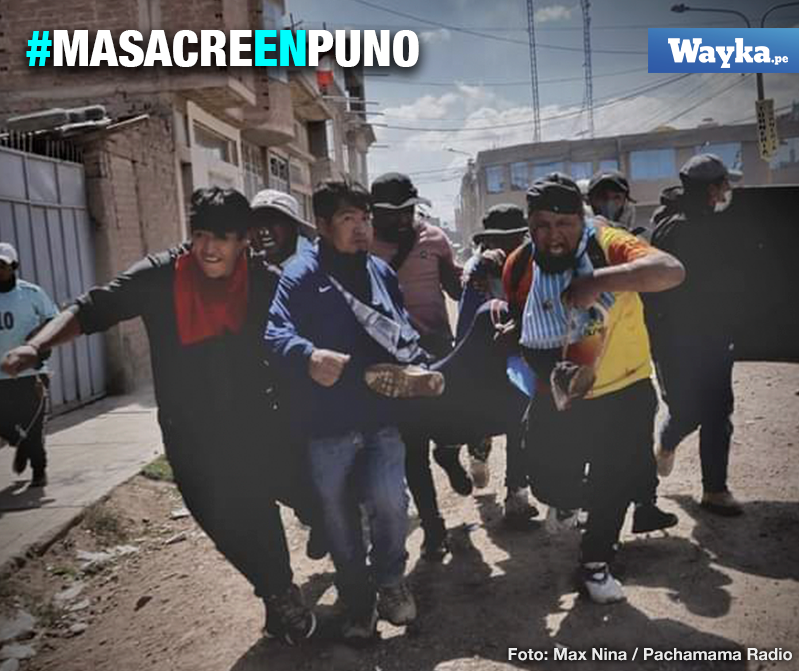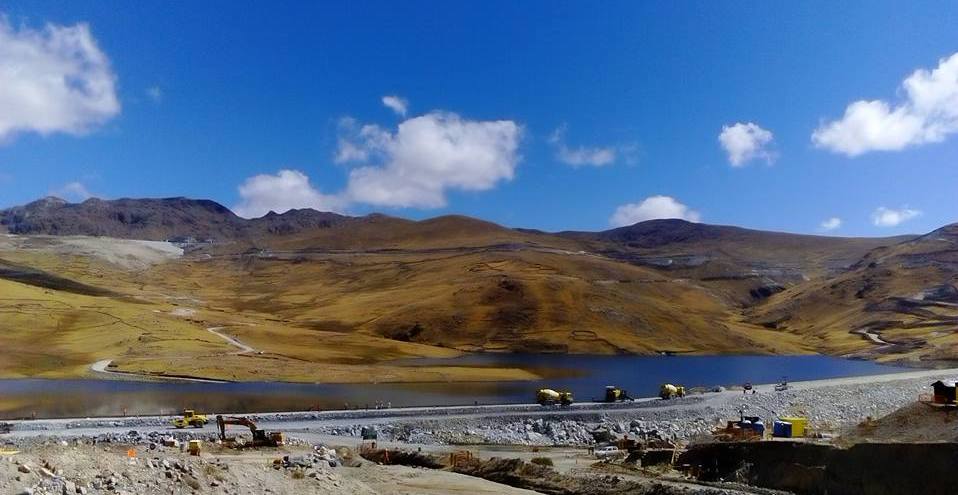
‘Genocidal’ massacre of protesters in Peru
The prosecutor general’s office in Peru, the Fiscalía, opened a preliminary investigation into President Dina Boluarte and five of her current and fomer cabinet members for possible acts of “genocide” in the repression of the mass protests sparked by the ouster of president Pedro Castillo last month. The announcement came a day after 17 were killed, including two teenagers, as protesters attempted to occupy the local airport in Juliaca, Puno region. The total death toll in the unrest since Castillo’s ouster now stands at 47. Peru’s southern regions of Puno, Cuzco, Arequipa and Madre de Dios have been almost entirely cut off by roadblocks since the protests remobilized with the new year. The giant Antapaccay copper mine in Cuzco region, operated by the Swiss multinational Glencore, is also under occupation by protesters, who set company vehicles on fire and clashed with police sent to remove them. (Photo: Max Nina/Pachamama Radio via Wayka)



